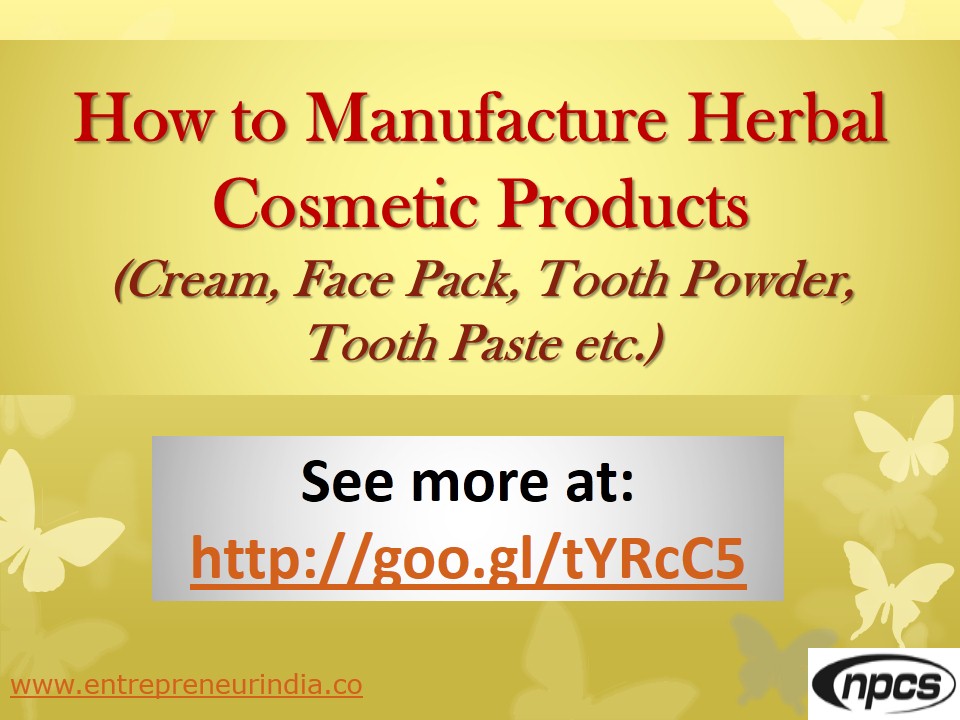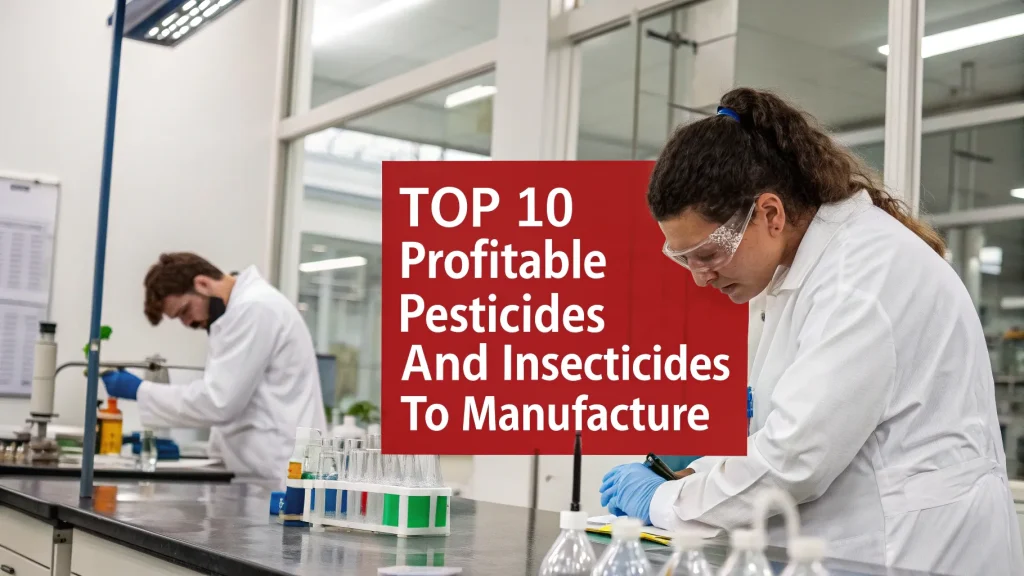
The herbal cosmetics industry has witnessed remarkable growth as consumers increasingly shift toward natural, chemical-free personal care solutions. Products made with herbs and plant-based ingredients offer safer, gentler alternatives to synthetic formulations. This rising trend has opened lucrative opportunities for entrepreneurs and small-scale manufacturers. From creams and face packs to tooth powders and herbal toothpaste, the demand for clean-label beauty and oral care products is expanding rapidly. However, entering this sector requires a clear understanding of ingredients, formulations, manufacturing techniques, and regulatory compliance. For aspiring entrepreneurs, knowing how to Manufacture Herbal Cosmetic Products face pack tooth powder tooth paste etc is the first step toward building a successful and ethical brand.
Setting Up a Herbal Cosmetic Manufacturing Unit
To begin manufacturing herbal cosmetic products, it’s essential to plan infrastructure, source ingredients, develop formulations, and ensure quality and safety at every stage.
See Also : Expanded Plastics & Polymers
Market Demand and Product Selection
Before starting production, analyze the current trends and preferences in the herbal cosmetics market. Popular product segments include:
-
Herbal fairness or moisturizing creams
-
Natural face packs and scrubs
-
Tooth powders with clove, neem, and babul
-
Fluoride-free herbal toothpaste
-
Hair oils, shampoos, and conditioners
-
Lip balms, lotions, and soaps
Focus on 4 to 6 products initially based on demand, ease of formulation, and available resources. Moreover, study consumer behavior related to ingredients like aloe vera, tulsi, turmeric, sandalwood, neem, mint, and activated charcoal. This helps in designing product lines that are both effective and marketable.
As a result, selecting the right mix of high-demand products ensures faster market entry and better sales potential.
Sourcing Raw Materials and Herbal Ingredients
A critical step in learning how to manufacture herbal cosmetic productscream face pack tooth powder tooth paste etc is sourcing genuine, potent, and contaminant-free raw materials. Herbal cosmetics typically include:
-
Plant extracts and essential oils
-
Herbal powders (neem, tulsi, amla, sandalwood)
-
Natural clays and base materials (multani mitti, kaolin)
-
Carrier oils (coconut, almond, castor)
-
Binders and natural emulsifiers (beeswax, lecithin)
-
Mild preservatives (vitamin E, grapefruit seed extract)
Buy ingredients from certified suppliers who follow organic or wild-crafted sourcing practices. Ensure every batch comes with a Certificate of Analysis (CoA) to verify purity, strength, and absence of heavy metals or microbial contamination.
Moreover, maintaining good relationships with reliable vendors helps ensure consistent supply and better pricing over time.
Formulation and Product Development
Herbal cosmetic formulations must be both effective and safe. A cosmetic chemist or ayurvedic expert can help create stable blends using natural ingredients. Each product category requires specific formulation knowledge.
-
Creams and lotions involve emulsification—blending oil and water using waxes and stabilizers. Aloe vera gel, essential oils, and glycerin improve skin hydration and absorption.
-
Face packs are typically dry powders or paste-based products made using clays, herbal powders, and natural actives. Multani mitti, turmeric, neem, and rose powder are common ingredients.
-
Tooth powder formulations include fine herbal powders such as babul, clove, rock salt, and activated charcoal. These are mixed uniformly in dry form and packed in airtight containers.
-
Toothpaste manufacturing involves blending herbal extracts into a paste base made of calcium carbonate, glycerin, and water, using natural sweeteners like stevia and flavoring agents like mint.
Moreover, each formulation must go through patch testing, pH evaluation, texture assessment, and shelf-life trials before being approved for production.
In contrast to chemical-based cosmetics, herbal formulations often have shorter shelf lives and require natural preservation systems to maintain stability.
Machinery and Equipment
The type of machinery you need depends on the product range and batch size. For small-scale herbal cosmetics manufacturing, essential equipment includes:
-
Mixing and blending tanks with stirrers
-
Jacketed vessels for heating and emulsification
-
Pulverizers and sifters for herbal powders
-
Tube or jar filling and sealing machines
-
Labeling and batch coding equipment
-
Dehydrators or low-heat dryers for face pack ingredients
Additionally, a cleanroom facility or dust-free production zone is recommended for hygiene-sensitive products like toothpaste and tooth powder.
Moreover, semi-automatic units help maintain consistency and reduce manual errors during filling and packaging processes.
As your volume grows, investing in automation improves speed, uniformity, and regulatory compliance.
Packaging and Labeling
Proper packaging is essential for product integrity, hygiene, and customer appeal. Herbal creams and toothpastes should be packed in tubes or jars with air-tight lids. Face packs and powders are best stored in foil-lined pouches, glass jars, or PET containers.
Use food-grade, eco-friendly packaging materials wherever possible. Labels must clearly display:
-
Product name and type
-
List of ingredients
-
Manufacturing and expiry dates
-
Batch number
-
Usage instructions
-
Manufacturer details
-
Net weight or volume
-
License number
Moreover, attractive and minimalistic packaging that reflects the herbal theme—like earthy colors or botanical illustrations—helps build brand identity.
In addition, tamper-evident seals, QR codes, and recyclable packaging are increasingly valued by health-conscious consumers.
Legal Requirements and Certifications
Manufacturing and selling herbal cosmetic products in India is regulated under the Drugs and Cosmetics Act, 1940. You must obtain a cosmetics manufacturing license from the State Drug Control Department. Other mandatory compliances include:
-
Good Manufacturing Practice (GMP) certification
-
BIS (Bureau of Indian Standards) compliance for product categories
-
Trade license and GST registration
-
Labeling norms as per BIS IS 4707 and IS 6608
-
Pollution control clearance, if required
For toothpaste and tooth powder, FSSAI approval is needed if ingredients fall under edible category. Exporters must also follow the regulatory guidelines of the target countries.
Moreover, obtaining organic or cruelty-free certifications adds market value and appeal to niche consumer groups.
Understanding how to manufacture herbal cosmetic productscream face pack tooth powder tooth paste etc means you must integrate compliance with quality control from day one.
Quality Control and Batch Testing
Herbal cosmetics require rigorous testing to meet safety and quality standards. Establish a small in-house lab or partner with a third-party laboratory to test each product for:
-
Microbial load
-
Heavy metals and pesticides
-
Stability and shelf life
-
pH and consistency
-
Sensory parameters (smell, feel, appearance)
Implement standard operating procedures (SOPs) for each production stage and maintain batch records, test reports, and raw material traceability.
Moreover, use customer feedback and real-world use data to improve formulations and address potential concerns like skin irritation or changes in texture over time.
In contrast to synthetic cosmetics, herbal products demand transparency and traceability due to consumer expectations and shorter preservation windows.
Marketing and Distribution Channels
Once you’re ready with a finished product line, the next challenge is reaching your target audience. Create a compelling brand story that reflects purity, sustainability, and heritage. Build a website with product pages, usage guides, and ingredient transparency.
Use social media platforms like Instagram, YouTube, and Facebook to showcase products, share skincare routines, and offer tutorials. Influencer marketing works especially well in beauty and wellness niches.
Moreover, list your products on marketplaces like Amazon, Flipkart, Nykaa, and niche herbal platforms. Offline distribution through ayurvedic stores, organic outlets, and beauty salons expands your reach.
Participate in local exhibitions, farmer markets, and wellness expos to generate early traction. Offer combo packs, trial kits, and referral discounts to increase sales.
As a result, a mix of online and offline marketing helps establish your herbal brand and build a loyal customer base.
See Also : Animal Farming
Conclusion
Understanding how to manufacture herbal cosmetic productscream face pack tooth powder tooth paste etc equips you with the tools to build a profitable, ethical, and future-ready business. By combining age-old herbal wisdom with modern production techniques and quality standards, you can deliver safe, effective products to a growing customer base. From sourcing pure ingredients and developing tested formulations to maintaining hygiene, compliance, and thoughtful branding—every step contributes to success. Moreover, the global shift toward wellness and sustainability makes this industry a promising space for innovation and growth. With careful planning and commitment to quality, your herbal cosmetic manufacturing unit can thrive and evolve into a trusted name in natural personal care.





